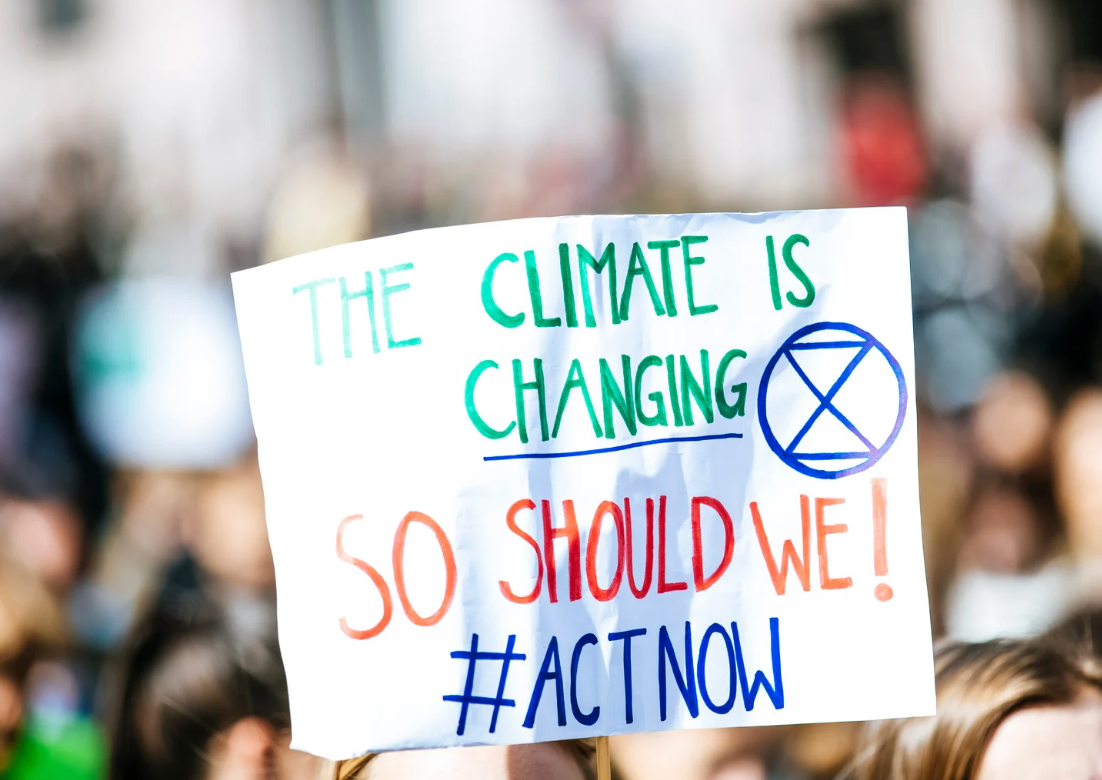Climate justice

Updated at 2025-10-02
This statement captures the essence of climate justice: the recognition that while global warming is universal, its consequences are profoundly unequal. To build a sustainable future, we must not only fight climate change by cutting greenhouse gas emissions but also address the social and economic injustices that shape who suffers most, ensuring that no one is left behind in the transition.
What does climate justice mean?
Climate justice connects the climate crisis with human rights, equality, and social justice. It highlights that climate change is not only an environmental issue but also a moral responsibility. Climate justice recognizes that existing inequalities can shape climate impacts and that vulnerable communities – especially those in low income countries and marginalized communities – often face the most severe consequences.
Climate change is driven largely by global emissions from wealthy countries and industrialized economies. Yet it is poorer countries, with fewer resources to adapt, that are already paying the highest price. Local communities that depend on natural resources for survival are losing livelihoods due to drought, deforestation, and rising sea levels. Meanwhile, marginalized communities in urban centers often live in areas most exposed to flooding, heat, and pollution.
Climate justice, therefore, means ensuring that the transition to a fossil-free society is not only about reducing greenhouse gases but also about protecting human dignity, rights, and equality.

Unequal impacts of climate change
Across the world, we see how natural disasters and extreme weather events are intensifying. Hurricanes, floods, and wildfires are destroying homes and livelihoods. For vulnerable communities, recovering from these shocks is far more challenging, as they often lack access to savings, insurance, or government safety nets.
The link between climate change and food security is also clear. Changing rainfall patterns, soil degradation, and water scarcity reduce agricultural yields. For poorer countries, where farming is often the backbone of economic growth, this creates a vicious cycle of hunger, poverty, and instability.
At the same time, low income communities in wealthy countries face their own challenges. Rising energy costs, limited access to healthcare, and climate-sensitive jobs make them more exposed to climate impacts. Even at the global level, it is clear: climate change does not affect everyone equally, and ignoring these disparities will make sustainable development impossible.
Historical responsibility and fairness
Historically, it is the rich countries that have emitted the most greenhouse gases during their path to industrialization. This has fueled economic growth for the wealthy, while poorer countries are left to cope with the fallout of global warming. Addressing climate change fairly, therefore, means acknowledging this historical imbalance and acting on it.
The Paris Agreement recognizes the principle of “common but differentiated responsibilities.” All countries must reduce emissions, but wealthy countries must take greater responsibility and provide financial resources, technology, and knowledge transfer.
Climate justice and sustainable development
Climate justice is central to sustainable development. Without justice, climate measures risk creating new inequalities. For example, shifting away from fossil fuels must not leave workers from the coal, oil, and gas industries behind. A just transition ensures that workers are retrained, local communities are supported, and new opportunities are created.
Similarly, investments in renewable energy within urban centers should benefit wealthy and marginalized communities. Climate change mitigation strategies that consider equity can reduce emissions while also strengthening economic growth and social cohesion.

Why climate justice matters
Climate justice is necessary because without it, global cooperation will fail. If wealthy countries do not acknowledge their role and provide support, poorer countries will not have the resources to adapt or mitigate. Trust is key, and climate justice is the foundation for building that trust at the global level.
It is also essential for wealthy countries to keep a mindset of climate justice to keep the well-being of their citizens. Failing to address the unequal distribution of impacts and risks within their societies will greatly increase costs, exacerbate wealth gaps and decrease the quality of life for many. The creation of solutions and alternatives from a climate justice perspective can open up new economic possibilities – without it, people may remain in poverty. Addressing the vulnerabilities of its citizens can also mitigate the health impacts associated with climate change; however, if this issue is not addressed, it could result in an overwhelmed health system.
It also matters because climate change threatens the stability of entire societies. Extreme climate impacts can lead to migration, conflict, and economic collapse. Ensuring a fair and just response is not just ethical – it is a practical necessity for maintaining peace and stability worldwide.
What can we do?
Working for climate justice is a shared responsibility. Governments must lead with policies that prioritize emission reductions and adaptation, recognizing the disparities that may exist within their societies. Businesses must commit to reducing emissions, be transparent and avoid greenwashing. Civil society must amplify the voices of vulnerable and marginalized communities and play a role in demanding accountability while making informed choices.
We can all:
- Hold leaders accountable for fair and inclusive climate policies.
- Support organizations that empower vulnerable communities and local communities.
- Promote awareness of how climate change affects people differently.
- Push for stronger action from wealthy countries to finance adaptation in poorer countries.
Building solutions for a just future
Climate justice is not a secondary concern – it is the key to addressing climate change effectively. If global efforts focus only on reducing emissions without considering justice, we risk leaving the most vulnerable behind and undermining sustainable development.
By contrast, integrating justice into climate change mitigation and adaptation allows us to build stronger, more resilient societies. Renewable energy projects can create jobs in low income countries while reducing global emissions. Climate-resilient agriculture can improve food security for local communities while protecting biodiversity and the global food supply chain. Financial support for poorer countries can help them recover from natural disasters, ensuring that present and future generations are not locked into cycles of poverty and vulnerability.
Climate justice means creating solutions that are fair, inclusive, and rooted in respect for human rights. By doing so, we can build not only a sustainable future but also a more equal and dignified world for all.
Related content
Here you can find articles and pages relevant to this subject.